Open-Source Sustainability Platform
Introduction
How might we create an open-source platform that integrates and automates the gathering, processing, and analysis of sustainability data, enabling Hempel and other stakeholders to access real-time insights, ensure transparency, and drive informed decision-making in their sustainability efforts?
The Growing Importance of Sustainability in Business
In today’s business landscape, sustainability has become a key priority for companies across all industries. As environmental regulations tighten and consumers demand greater transparency, businesses are increasingly held accountable for their sustainability practices. This shift is driving companies like Hempel to adopt more responsible and eco-friendly operations. However, managing sustainability data—such as tracking carbon footprints, energy usage, and material consumption—presents significant challenges. Many businesses, including Hempel, still rely on manual data collection processes, which are time-consuming and prone to errors.
The need for more efficient, reliable, and transparent data management systems has never been greater. In this project, we focus on streamlining the collection, processing, and analysis of sustainability data, allowing companies to operate more efficiently while meeting their sustainability goals.
Part 1: Identifying the challenges
Hempel faces significant challenges in its data collection process due to the reliance on manual methods. Gathering data from multiple sources like competitor websites, public databases, and industry reports is labour-intensive and time-consuming, requiring employees to meticulously search, extract, and verify information across different systems and formats. This not only slows down the process but also diverts resources from more strategic tasks, leading to inefficiencies.
Additionally, ensuring data accuracy is problematic with manual collection, as human errors—such as data entry mistakes, inconsistent formatting, or incorrect interpretation—are common. These errors result in discrepancies that undermine the reliability of the data, complicating analysis and decision-making. The need for constant cross-checking further exacerbates these challenges, increasing the risk of inaccuracies and inconsistencies.
Hempel faces challenges in data processing and integration due to the fragmentation of data across various departments and systems. This scattered data makes it difficult to create a cohesive view, leading to inefficiencies in accessing and analysing the information. The lack of integration between systems also results in redundant data entry, where the same information must be manually input multiple times across different platforms. This redundancy not only wastes time but also increases the likelihood of errors during data processing, further complicating the accuracy and reliability of the data used for decision-making.
Their ability to make timely decisions is hindered by delays in data processing, which slow down the reporting process. This lag means that by the time data is analysed and presented, it may already be outdated, reducing its relevance for decision-making. Additionally, the fragmented and incomplete nature of the data further limits the ability to derive actionable insights. Without a comprehensive and real-time view, it becomes challenging to make informed decisions, leading to missed opportunities and less effective strategies.
Part 2: Presenting the solution
What is the solution?
The recommended solution for Hempel’s data streamlining challenge is the Open-Source Sustainability Platform. This platform harnesses the power of AI and blockchain technology to automate the collection, processing, and analysis of sustainability data. By integrating various data sources into one unified system, the platform simplifies the management of fragmented information, providing real-time insights into key sustainability metrics such as carbon emissions, energy consumption, and waste reduction. Blockchain ensures that the data remains transparent, secure, and trustworthy, fostering confidence among stakeholders and regulators.
The platform’s open-source nature allows for continuous improvement through collaboration with experts, businesses, and contributors from around the world. By offering customizable dashboards, automated reporting tools, and benchmarking capabilities, it empowers Hempel to make informed decisions and meet regulatory requirements more efficiently. Furthermore, the platform fosters innovation by encouraging the sharing of best practices and co-creation of new sustainability solutions. Ultimately, the Open-Source Sustainability Platform streamlines the data gathering, processing, and validation for companies like Hempel, while enabling them to achieve their sustainability goals with greater precision and impact, efficiently meeting market demands.

Information on the solution
The proposed platform for Hempel streamlines data collection by automating the process across various sources, significantly reducing the manual effort required and enhancing data accuracy. By eliminating the need for employees to manually search, extract, and verify information, the platform not only saves time but also minimizes errors associated with human intervention.
Additionally, the platform addresses issues of data fragmentation and redundancy by consolidating all data into a single, integrated system. This integration ensures that information from different departments and systems is unified, providing a comprehensive view that eliminates the need for redundant data entry and reduces the risk of errors. As a result, the platform enhances efficiency and reliability in data management.
Examples of what the data might look like on the platform
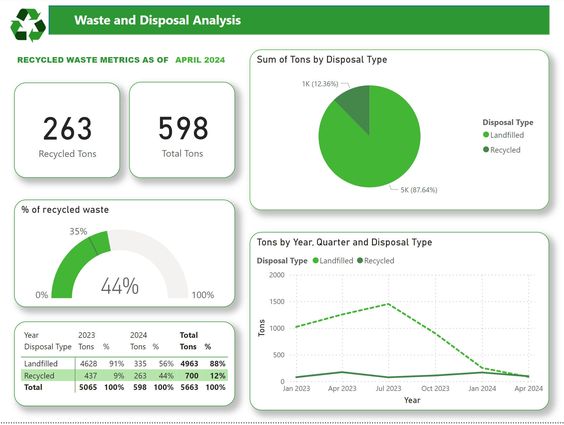
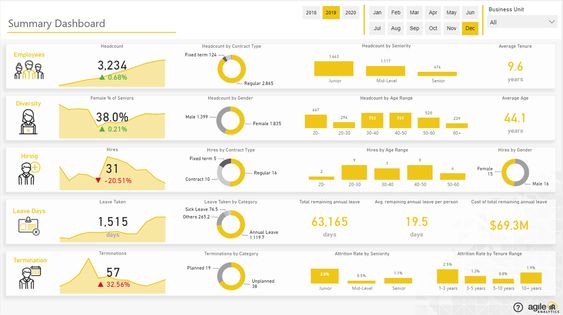
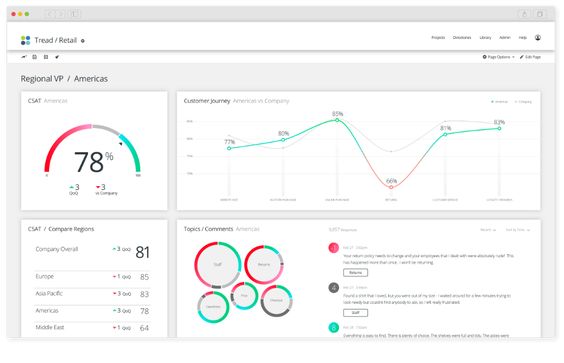
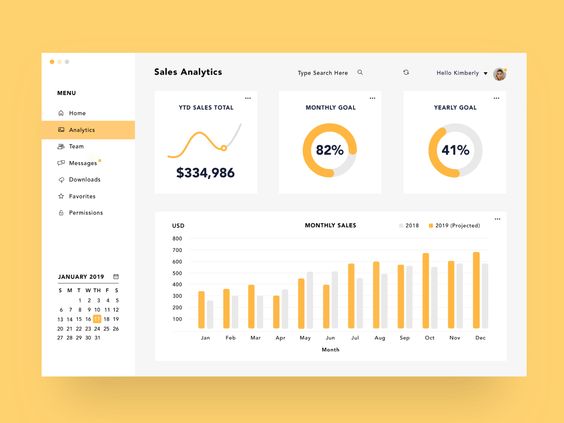
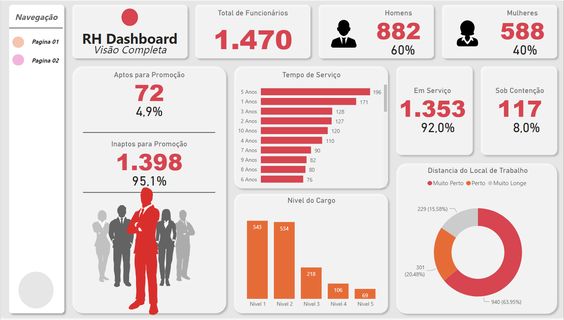
The platform enhances data processing and analytics by providing real-time insights, enabling faster and more informed decision-making. With immediate access to up-to-date data, Hempel can quickly respond to changes and opportunities, ensuring that decisions are based on the most current information available. The platform leverages advanced technologies like AI and machine learning to efficiently process and analyse data. These technologies automate complex analytical tasks, uncover patterns, and generate actionable insights, allowing Hempel to optimize operations and make strategic decisions with greater accuracy and speed.
The platform enhances transparency and security by utilizing blockchain technology, which ensures that all data is transparent, secure, and immutable. This technology safeguards the integrity of the data, making it tamper-proof and building trust among stakeholders who rely on accurate and reliable information. The open-source nature of the platform promotes community-driven improvements and widespread accessibility. By allowing contributions from a broader community, the platform continuously evolves and adapts to emerging needs, ensuring that it remains a robust and effective tool for all users. This openness also makes the platform more accessible, enabling broader participation and collaboration.
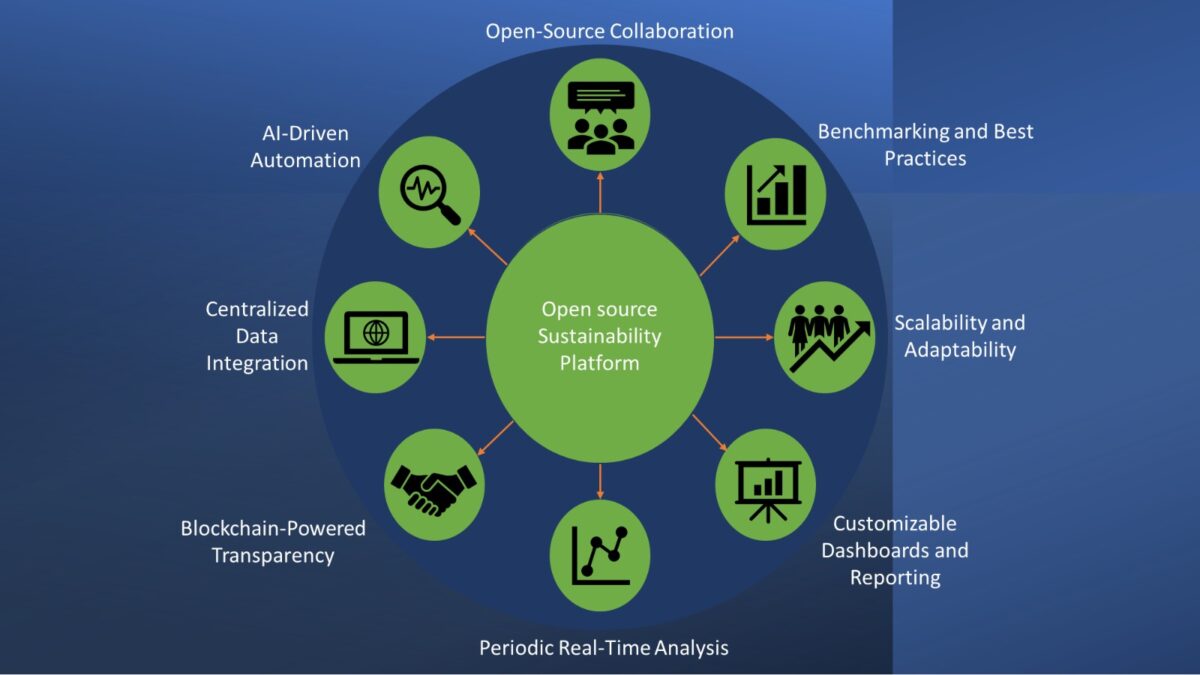
Prototype
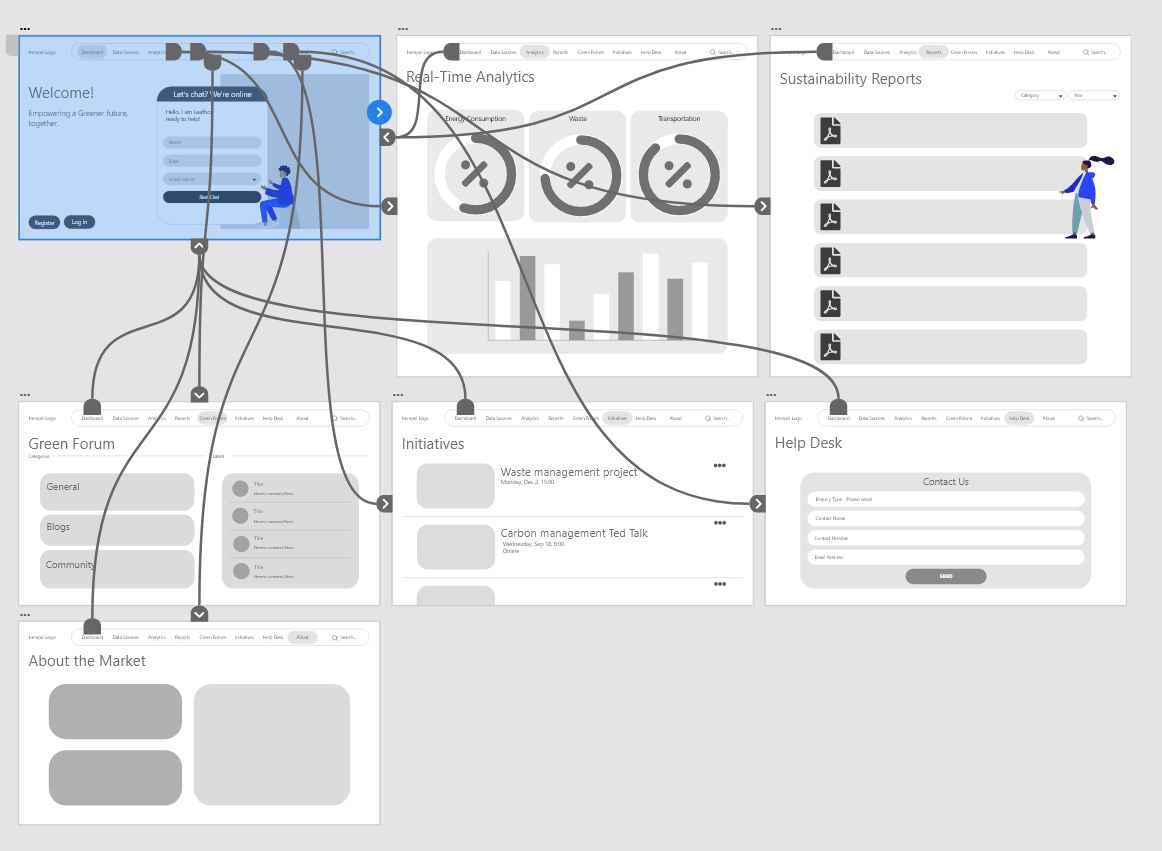
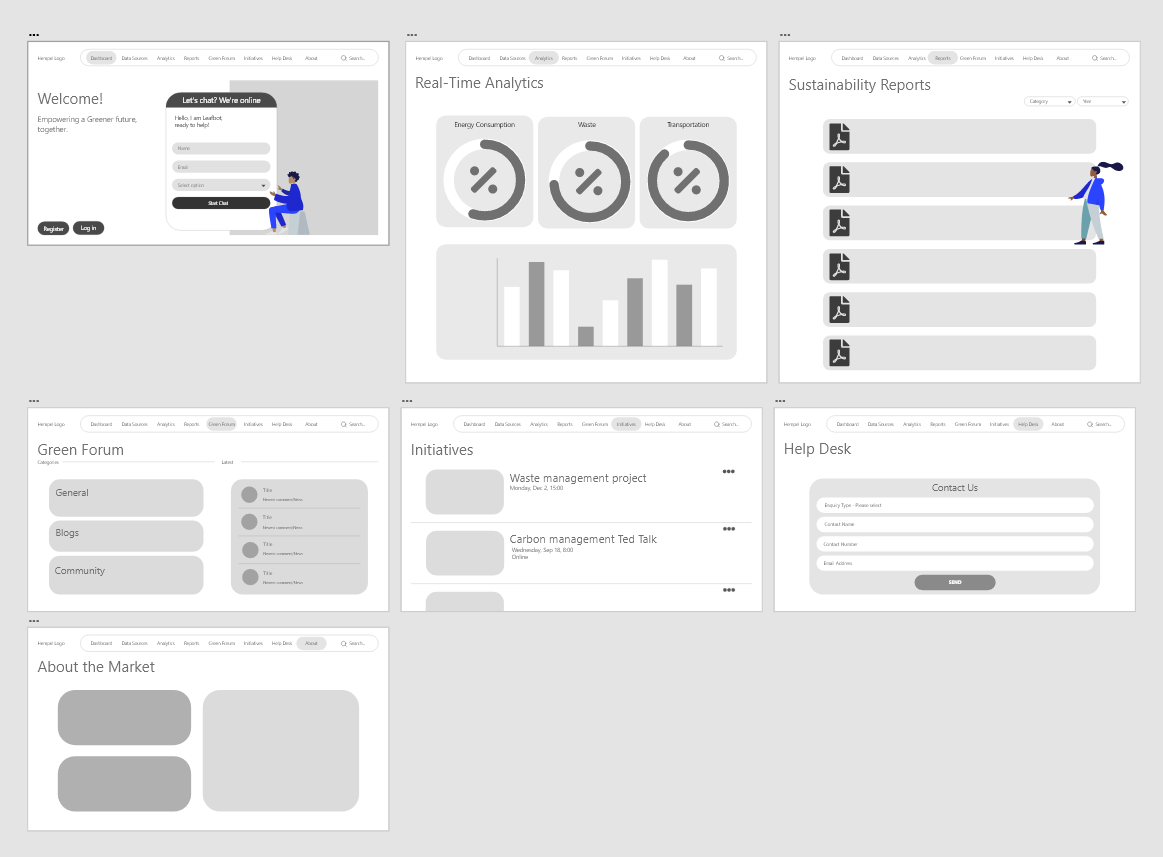
Part 3: Impact and Next Steps
Implementing a streamlined data management system at Hempel will significantly enhance both operational efficiency and decision-making processes. By automating data collection and integrating various sources into a centralized platform, Hempel can reduce the time and resources spent on manual data entry and verification. This leads to quicker data processing, minimizing delays and enabling faster responses to market changes, ultimately saving costs.
Moreover, real-time access to accurate data empowers Hempel’s leadership to make informed, strategic decisions. The ability to quickly analyse trends and operational metrics allows for more precise planning, optimizing processes, and reducing waste. Additionally, the system supports better stakeholder communication through timely and transparent updates, strengthening relationships and ensuring compliance. In essence, this solution positions Hempel for sustained growth and operational excellence in a competitive market.

For Hempel’s stakeholders, the streamlined data management system offers significant benefits in terms of transparency and collaboration. By providing more accurate and real-time data, the platform ensures that customers, supply chain partners, and investors have reliable information at their fingertips. This increased transparency fosters trust and confidence, as stakeholders can make informed decisions based on up-to-date insights. The platform also enhances collaboration by aligning all parties on sustainability practices. With easy access to comprehensive data, stakeholders can work together more effectively to achieve shared sustainability goals, driving better outcomes for Hempel and its partners. This improved alignment not only strengthens relationships but also supports collective progress toward environmental and social objectives.
Further Development
Next Steps and Future Outlook for Hempel’s Data Management Solution
The implementation of Hempel’s streamlined data management system will unfold in phases, beginning with creating a digital prototype and later on a beta version for early adopters. This initial rollout will focus on gathering valuable feedback from users to refine and improve the platform before broader deployment. As the platform evolves, Hempel will continue to incorporate user insights, ensuring it meets the needs of all stakeholders.
Community involvement is crucial to the platform’s success. Hempel would encourages users, partners, and the wider industry to actively participate in the platform’s development. By providing feedback and sharing ideas, the community can help shape the platform into a powerful tool for sustainability and efficiency, benefiting both Hempel and the industry at large.
We encourage you to stay engaged with the ongoing development of the streamlined data management platform. Your insights and contributions are invaluable as we will work together to create a powerful tool for sustainability and efficiency. For those interested in learning more or collaborating on this initiative, we encourage you to reach out. Your feedback and partnership will help us drive innovation and achieve our shared goals. Contact us today to get involved and make a meaningful impact.
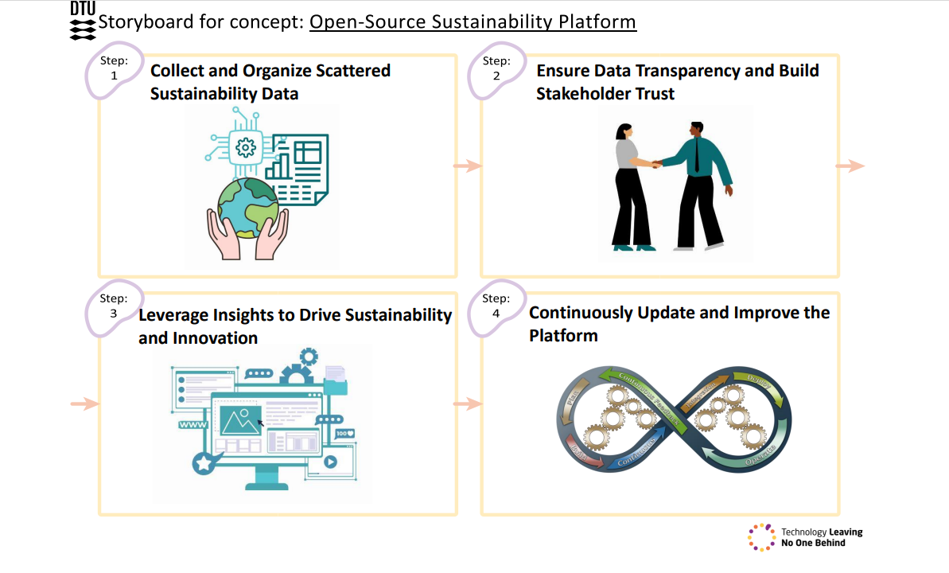
Conclusion
Hempel’s proposed Open-Source Sustainability Platform addresses the pressing need for efficient and reliable data management in sustainability efforts. By automating data collection and integrating sources into a centralized system, this solution reduces manual labor, minimizes errors, and provides real-time, accurate insights. The use of AI and blockchain enhances decision-making, transparency, and security, building trust among stakeholders.
With phased implementation and community involvement, Hempel is set to achieve its sustainability goals more effectively, setting a new industry standard for data-driven sustainability. The initiative invites collaboration and innovation, positioning Hempel as a leader in sustainable business practices.
Meet the Team YA-SA-2



